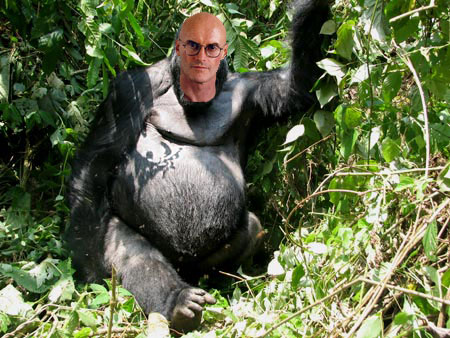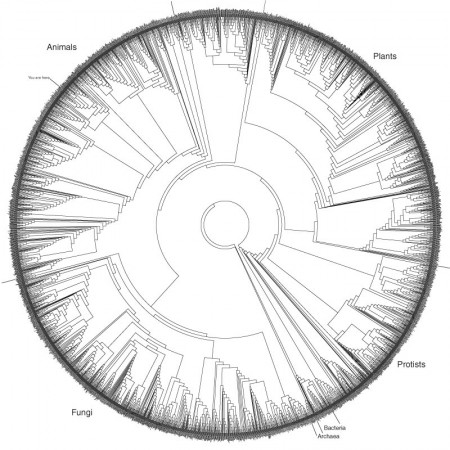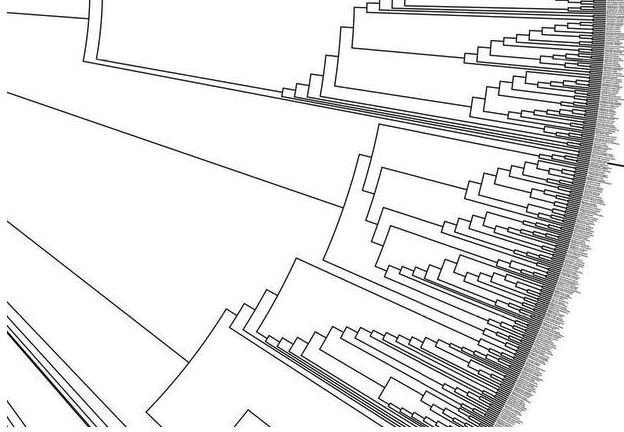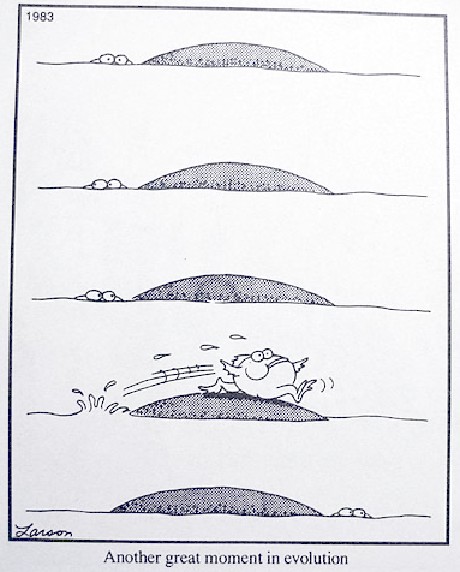
Separate truths
It is misleading — and dangerous — to think that religions are different paths to the same wisdom [excerpt Boston.com April 25, 2010] Of course, those who claim that the world’s religions are different paths up the same mountain do not deny the undeniable fact that they differ in some particulars. Obviously, Christians do not go on pilgrimage to Mecca, and Muslims do not practice baptism. Religious paths do diverge in dogma, rites, and institutions. To claim that all religions are basically the same, therefore, is not to deny the differences between a Buddhist who believes in no god, a Jew who believes in one God, and a Hindu who believes in many gods. It is to deny that those differences matter, however. From this perspective, whether God has a body (yes, say Mormons; no, say Muslims) or whether human beings have souls (yes, say Hindus; no, say Buddhists) is of no account because, as Hindu teacher Swami Sivananda writes, “The fundamentals or essentials of all religions are the same. There is difference only in the nonessentials.”
This is a lovely sentiment but it is untrue, disrespectful, and dangerous.
The gods of Hinduism are not the same as the orishas of Yoruba religion or the immortals of Daoism. To pretend that they are is to refuse to take seriously the beliefs and practices of ordinary religious folk who for centuries have had no problem distinguishing the Nicene Creed of Christianity from the Four Noble Truths of Buddhism from the Shahadah of Islam. It is also to lose sight of the unique beauty of each of the world’s religions. Stephen Prothero is a religion professor at Boston University. This article is adapted from his new book, ”God is Not One: The Eight Rival Religions That Run the World–and Why Their Differences Matter.”
This essay of Professor Prothero is amazing in a bad way. My criticism is simple: there’s a substantial and subtle literature concerned with the claim he’s arguing against, yet none of it enters into his argument. This huge hole swallows the glib attack he issues in this essay, an attack careless in its presentation of categories and domains, and, an attack launched against more than a few straw men.
It’s as if Prothero feels he can fool the discerning reader. Normally I would dig some and see if the author is through-and-through a charlatan. Here my guess is that he isn’t, but not from anything found in his intentionally misdirected essay.
He writes here about very intriguing questions. In comparing religions with one another, in what ways does this show similarities? What are those similarities about? Should the evidence show that some, or all, religions overlap in particular ways, are there, then, valid generalizations to be inferred from the specifics of any overlap?
Furthermore, such an inquiry about common features is itself framed by a variety of disciplines, and each brings different interpretive and discipline-bound practices to bear on the question. Outside of this there is also a worthy literature brought forth by non-academic experts, and, as well, there is also a long history of this very inquiry. One aspect of this history is that it evolved from the point where specific religions come into contact with each other, and thus was evoked by the curiosity of some religious persons about the possibility of commonality. This comes about long before the frameworks of modern academic disciplines existed.
It is also obvious: there is a fundamental issue begged by any theism, no matter how particularized a theism is in practice or by a its founding assumptions. This is simple to articulate: if there is a God of “All” is not this God then a God of all spirituality, irrespective of whether a particular spirituality is granted primacy or is heretical? In other words, if God of this sort does in fact exist, this God would ultimately be the God of religionist, heretic, and atheist alike. From this, if this is true, one would expect commonalities.
There are four modern perspectives, among many, which frame different possibilities for important, maybe crucial, inquiries into commonality. One is the Analytic Psychology, given by Carl Jung. Here spirituality is viewed as a phenomena of introspective consciousness. From this, (largely) personal religious experience and development is the nexus for an inquiry into, as-it-were, possibly like-minded objectives of self-realization. There is in this, a prospect that human consciousness, as a matter of its psychological constitution, in specific keys lights upon objectives that are similar or identical, yet only does this in the precise domains where this phenomena may exist, and this is located within these precise domains in specific religious traditions.
Two is the integral perspective on human development, given its most detailed elaboration by Ken Wilber; (and Wilber’s elaboration following mostly from the thoughtful work of Jean Gebser.) Integral thought expands the nexus of inquiry along a spectrum of developmental lines. Similar to Analytic Psychology, it is encumbered by fundamental assumptions about the universal nature of human aspiration. Taken as an outlook, (and “in-look,”) the Integral perspective provides a loose framework for investigating procedures for self-realization–procedures embedded in particular instrumentalities found in different spiritual and religious practices.
Third is anthropology, a modern discipline geared toward differentiation of human phenomena. Commonalities would be rigorously qualified and vigorously contested as a matter of methodology, yet, the idea that commonalities could be universal would remain a worthwhile anthropological hypothesis. This is especially so if such a hypothesis is unfolded in the context of evolutionary anthropology. Here the framing starts from the idea that religions may be dramatically different, but that human nature is not also wholly different.
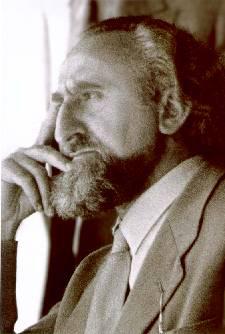
Fourth, and is the argument posed by Frithhof Schuon, and echoed by a specific ilk of traditionalists and (somewhat) outsider experts, such as Mercea Eliade, Joseph Campbell, Jacob Needleman, Rudolph Steiner, and others. Schuon described the over-arching aspect (and nexus for inquiry,) in the title of his book, The Transcendent Unity of Religion. I going to gloss the deep subtlety of Schuon’s argument and suggest his philosophical perspective basically holds this: where there is religion, there is also found a domain of aspirational practice where experience of the deep relationship between man and divine cosmos necessarily abides the idea that the cosmos is set up to evoke this relationship. It could be said the nexus of inquiry that necessarily follows from there being a God of All, is such–that a universality of religion in this aspirational domain is necessarily entailed by this primary assumption. Thus, given that there is a God of All and everything, we might expect to find similarities ordinated by God’s, if you will, “set up.”
(Schuon is superior to Karen Armstrong, with respect to being a source for beginning an inquiry at the abode of this nexus.)
***
Prothero doesn’t introduce any of these four vectors for inquiry into his didactic essay. For me, in not doing so, his argument is damaged out of the gate. If we break down the entire spectrum of human religious behavior, it could be incumbent upon an investigator to account for the behaviors oriented around the idea of the unity–in precise domains–of some/most/all religions.
But Prothero is mostly disingenuous in employing straw men and his attempt to wrangle an argument out of several category errors, the most grotesque of which is found in his silly statement, “To pretend that they are is to refuse to take seriously” (yada yada.) Since the point of finding similarity is to differentiate similarity from that which is dissimilar, there isn’t any ground to be gained by pretending that subtle arguments for similarity revolve around thinking different Gods (or theisms,) are said to be the same. This isn’t to say that there aren’t people who think this, its just that this is a definitive straw man.
(To the side of all this there is a contest of theisms. The ripe question for proponents of a distinctive theism within the context of the various Ambrahamic religions is simply enough, for example, ‘do you, as a Christian mystic pray to a different God than the God the Muslim prays to?’ In this the possibility of a negative answer holds another variation on the prime question about sameness and similarity. On the other hand, this is another way of wondering to what extent God owns a home team!)
The meta-inquiry is one concerned with a description, differentiation, and conceptualization of domains of human religious behavior and phenomena. This would work to tightly qualify the domains and then sort out apparent similarities. For me, anthropology, especially given the lens of an evolutionary framing, is the least inflicted by confirmation bias and tautological precepts. Still, Schuon and Dr. Jung opus, at a minimum, are worthwhile for their sophistication and depth, even if there is (for me) no slam dunk.
As it clearly appears when considering the fundamental question of the Divine Will as with other major instances of metaphysical exposition and spiritual expression, Schuon’s esoteric perspective can be best characterized as a science and discipline of objectivity that situates each reality at its own adequate ontological level and within its overarching metaphysical or cosmological context. In doctrinal as in methodical matters, Schuon’s thrust lies in a lucid perception of realities that considers both their metaphysical and archetypical meaning as well as the specificity of their plane of manifestation. Thus, in pure metaphysics, the esoterist avoids the pitfalls of confessional, anthropomorphic, and moralist expediency and sublimity by focusing on the dimensions, modes, and degrees of the theophanic unfolding of the Real. He does not confuse metaphysical realities with their partial or distorted contours as envisaged through human biases, nor does he project the limitations of human moral categories onto the Divine Order. At the same time, he perceives the roots of all spiritual, aesthetic, and moral phenomena in the Supreme, and he accounts for their meaning on the basis of the Divine, thereby describing the multileveled and multifaceted Unity of Being. In spiritual matters alike, esoterism reaches to the essential through the veil of superimpositions and accretions, while elucidating the partial legitimacy of mystical emphases, excesses, and subjective or collective detours. As such, esoterism is nothing less than the most direct and comprehensive language of the Self. jean-Baptiste Aymard-Patrick Laude, Frithof Schuon, life and Teaching; 2004 SUNY Press)



